lonehill
Karabo Molokomme • November 3, 2023
Staff Enrichment Day: Strengthening Bonds and Boosting Teamwork
Following a hectic yet fulfilling 3rd term, our dedicated staff members gathered for the traditional Staff Enrichment Day. This delightful afternoon was brimming with laughter, camaraderie, and friendly competition.
In a lively "Minute to Win It" challenge, we not only shared hearty laughs but also saw the competitive spirit of some among us. Engaging in team-building activities like this provides valuable insights into each other's strengths and weaknesses.
Understanding these aspects fosters a deeper bond among employees and enhances teamwork, which is fundamental for any organisation. Such activities not only create a positive working atmosphere but also promote unity and collaboration among colleagues.
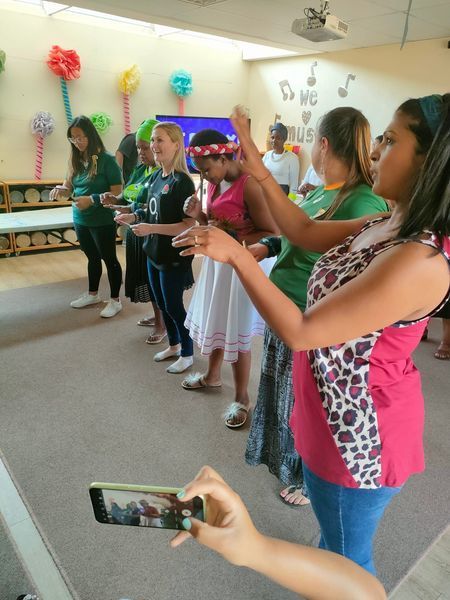
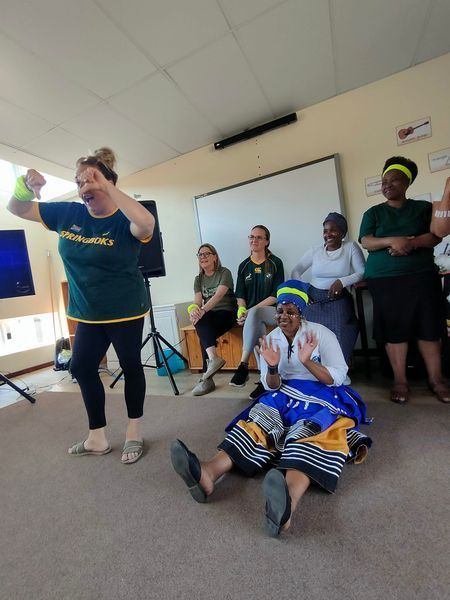
Splashing into Confidence: Our Jelly Babies' First Swim Lesson
Just before the end of Term 3, our youngest learners, the Jelly Babies, had their inaugural swimming lesson at school. With the water temperature at a comfortable 27°, the children immersed themselves in a world of fun, splashing, blowing bubbles, and engaging in delightful exercises like the choo-choo train along the poolside.
Beyond the joy, these swimming sessions hold immense developmental value. Confidence in water not only aids emotional growth but also enhances cognitive and physical development in early childhood. Regular swimming experiences help children navigate various sensory inputs, contributing significantly to their overall development. Moreover, these sessions effectively work and strengthen their muscles, promoting physical fitness and resilience.
In addition to its numerous benefits, swimming is undeniably a source of sheer delight for our young learners, making it a cherished part of their educational journey.
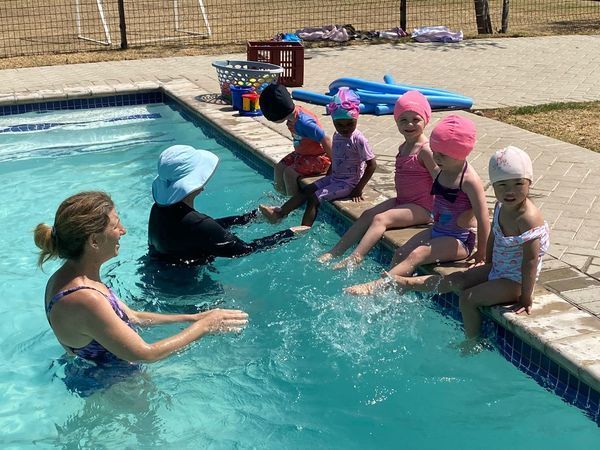
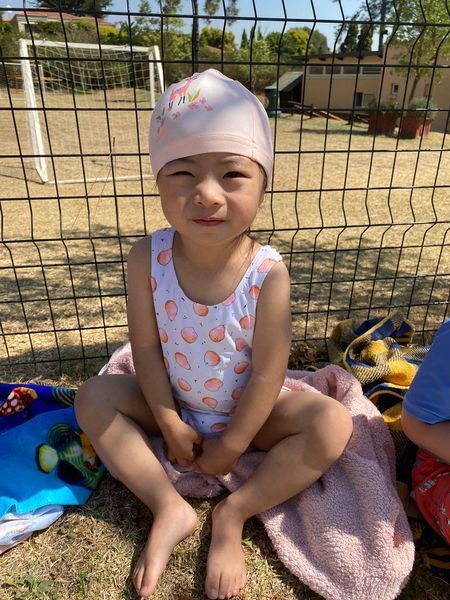
Open Cricket boys
Our Open Cricket boys' team showcased their talent at the Inter Crawford Cricket Tournament in Durban, hosted by Crawford North Coast. Under the watchful eye of Michael Johnson, Head of Sports, the boys displayed commendable skills, improving steadily throughout the tournament.
The event, named after Mr Owen Kuyper, a former Crawford Principal, was not just a competition but a chance for aspiring cricketers to shine. Mr Kuyper, deeply engaged, interacted with the young players, inspiring them with his presence.
Crawford Lonehill Prep secured an impressive 3rd place among 8 competitive teams. The accompanying photos capture our team's sporty spirit, donned in their sponsored Travel.co.za kit. The success of our Proteas over the weekend added to the tournament's excitement, creating a vibrant atmosphere of sportsmanship and camaraderie.
Cricket is not merely physical activity; it's a game of strategy. Our team's performance exemplifies the power of teamwork at Crawford International Lonehill, showcasing the spirit of collaboration and determination. Well done, team!
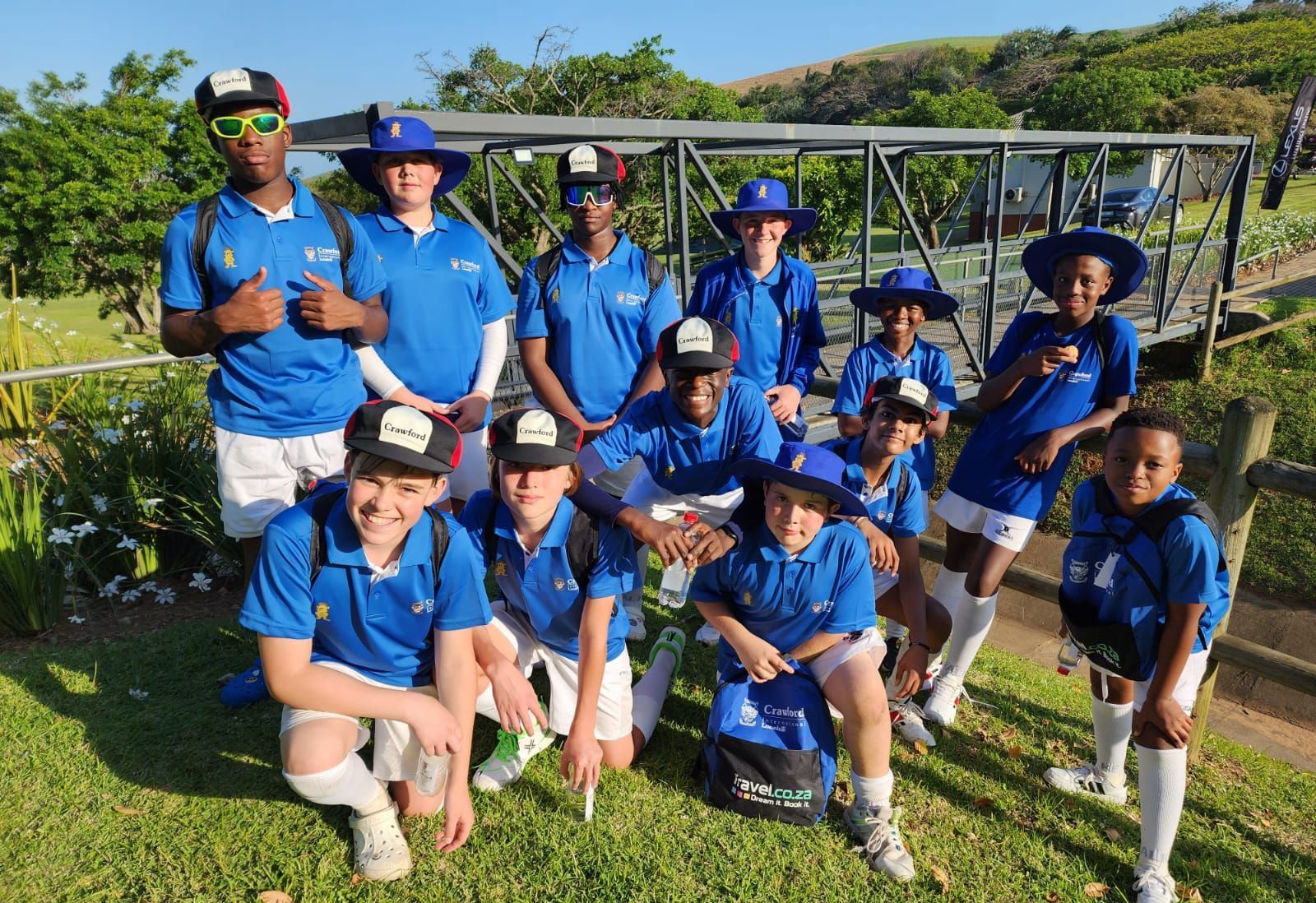

Grade 3s Delight in Scrumptious Crumpet Day
The delightful aroma of freshly made crumpets filled the air as our creative Grade 3s embarked on a culinary adventure. In a hands-on session, they delved into the world of measurements, following recipes, and understanding the transformation of raw ingredients into delectable treats.
This activity served as a perfect blend of education and fun, teaching the young chefs the nuances of baking techniques and the appropriate use of kitchen appliances. Beyond the delightful taste, the session honed problem-solving skills, encouraging attentive listening and thoughtful responses to questions.
More than just a cooking lesson, this experience provided valuable insights into the precision and expertise required in baking. As these young chefs crafted their crumpets, they gained a deeper appreciation for the art of culinary preparation. It's evident; we have some budding chefs in the making, ready to whip up delicious creations and perhaps even inspire future culinary masterpieces. Keep up the great work, Grade 3s!
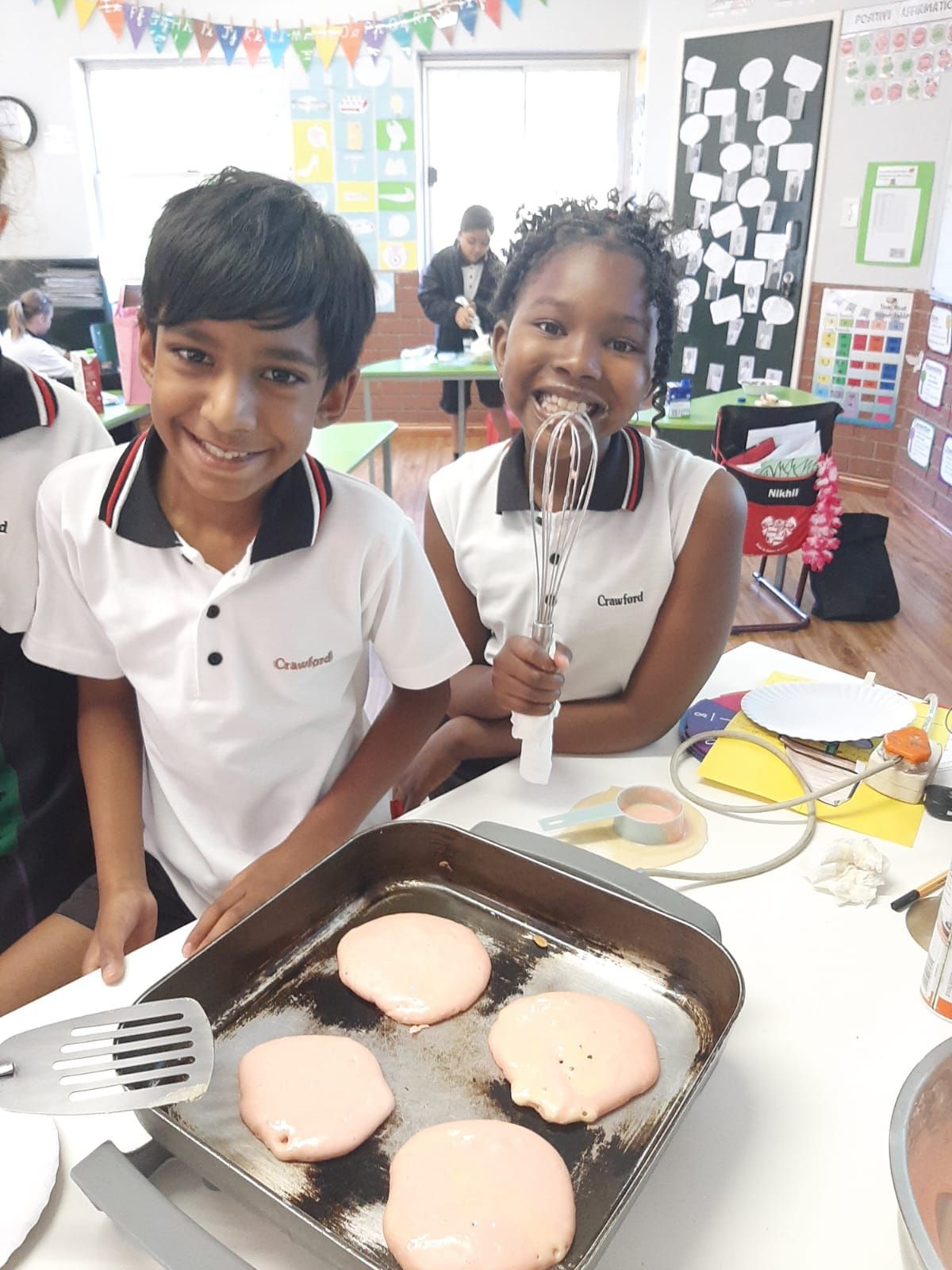
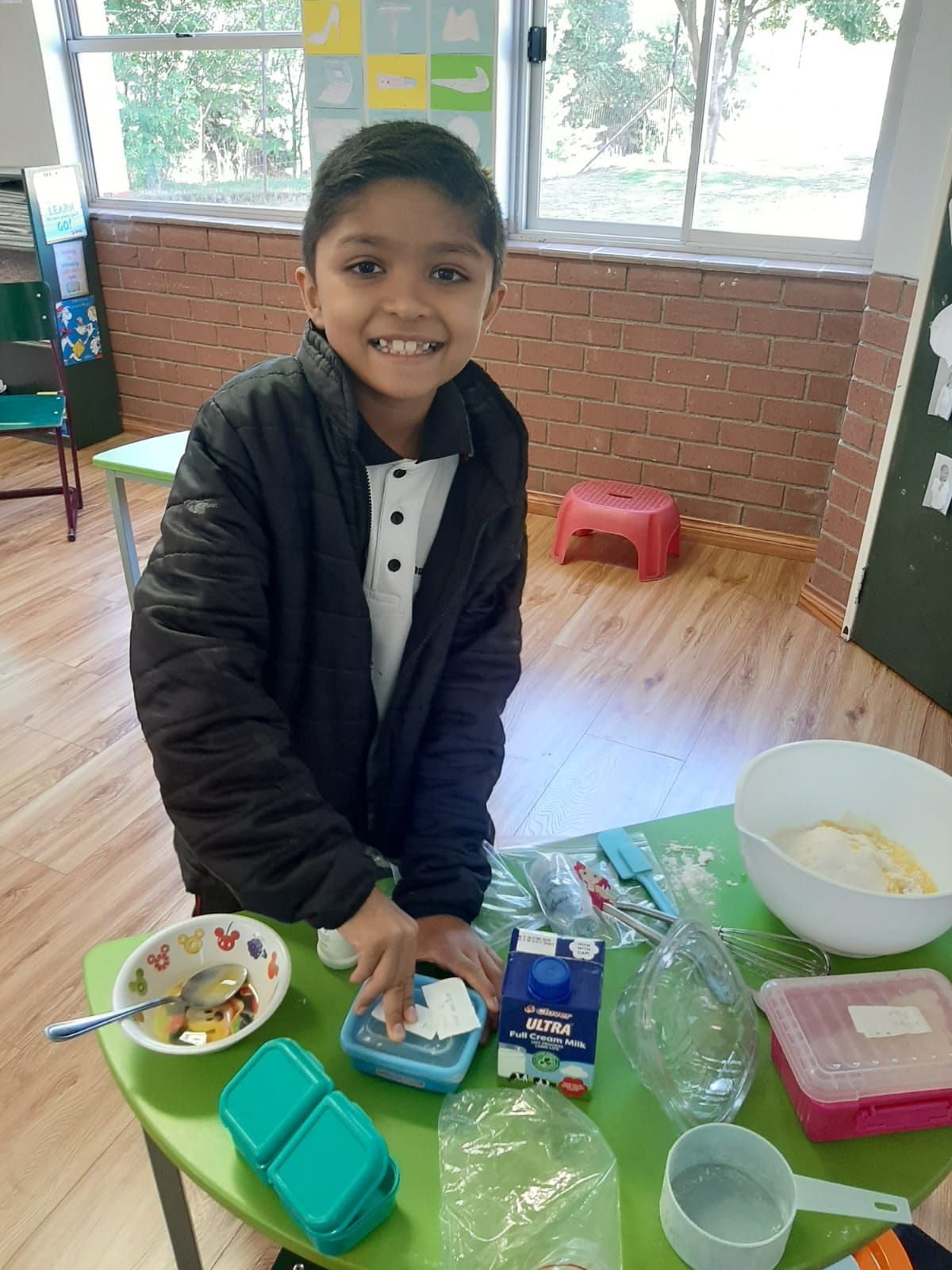
College
Crawford International Lonehill College Art and Design Collaboration
Our talented Art and Design students at Crawford International Lonehill College embarked on an extraordinary journey, joining forces with the incredible team at "The Daily Coffee" in Lonehill Shopping Centre for an awe-inspiring collaboration.
This venture transcended the realms of mere artistry; it was a transformation of learned skills into real-world enchantment.
With unwavering determination, they navigated the intricate design process, mastering the art of problem-solving and time management. Translating the client's vision into a vivid, jaw-dropping reality, they aimed to leave everyone in sheer awe.
However, this collaboration was not just about artistic brilliance; it was a heartfelt endeavour to give back and strengthen our bond with the vibrant community that surrounds us. A massive shout-out and heartfelt thanks to The Daily Coffee Lonehill for this exhilarating opportunity. Be prepared for more astounding creations from our exceptionally talented students, the best is yet to come.
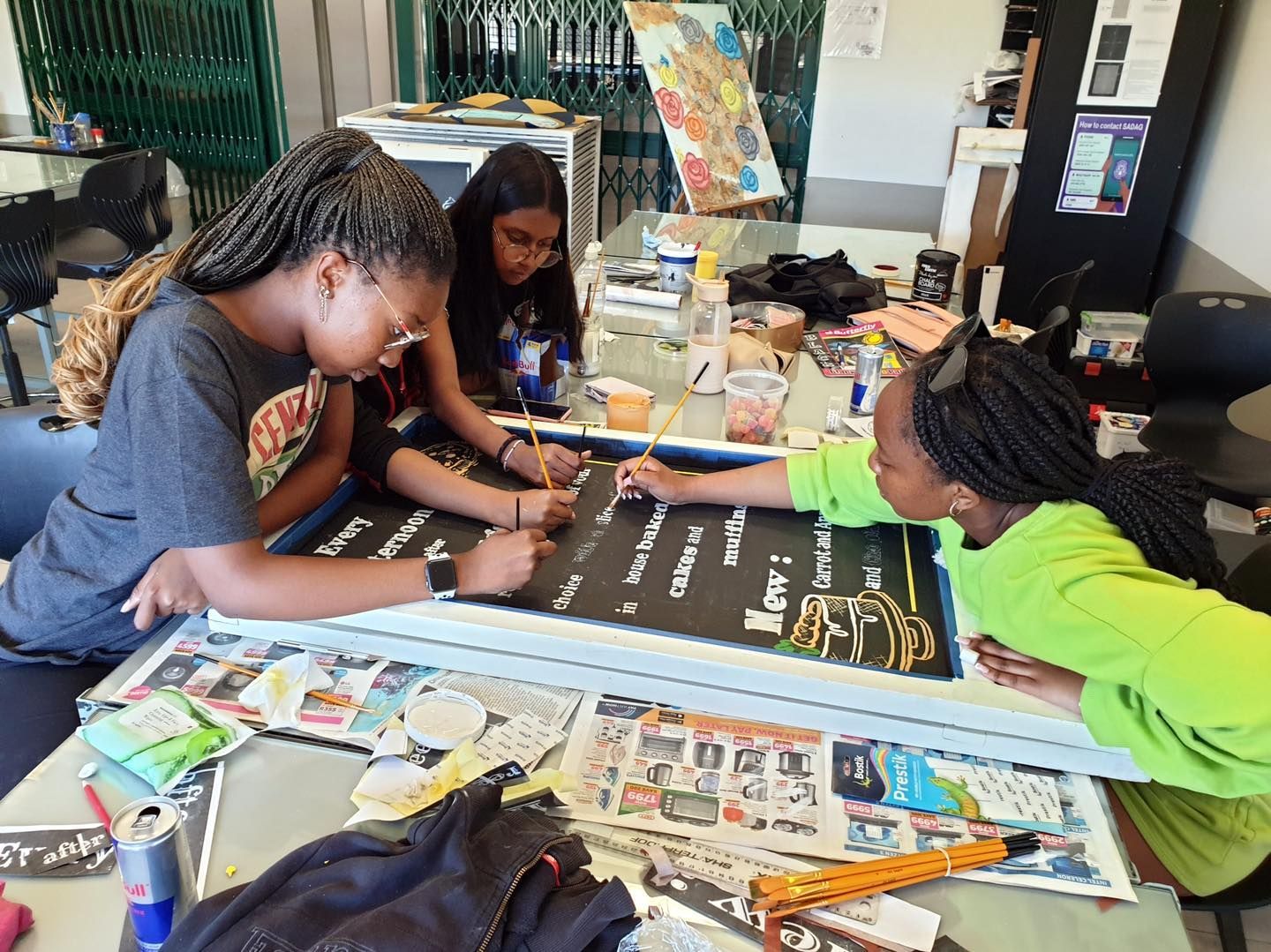

Valediction 2023: A Night of Honour and Inspiration
Crawford International Lonehill College recently bid a magnificent farewell to the remarkable Class of 2023 during an emotional valediction and candle lighting ceremony. The evening was a poignant tribute to our students, honouring their achievements, unwavering dedication, and loyalty exhibited throughout their college journey.
To the Class of 2023, we extend our heartfelt gratitude for the indelible mark you have left on CCL over the years. A special thank you goes out to our dedicated teachers, whose passion for teaching transcends the boundaries of textbooks, shaping the minds of many. Your influence resonates far beyond the confines of the classroom.
This memorable evening was made possible through the relentless efforts of our staff, including the Grade Tutors, Mr. Smith, and Ms. Vieren, whose meticulous planning ensured the event's success. As a cherished tradition, we welcomed an esteemed Alumni guest speaker, Dr Langa Twala, from the Class of 2013. His powerful address centred on three guiding principles that have moulded him into the exceptional person he is today.
Thank you, Dr Twala, for your inspiring words, reminding our students that the journey ahead is shaped by resilience, determination, and a commitment to excellence. Your message will undoubtedly resonate in the hearts of our graduates, guiding them towards a future filled with promise and endless possibilities.


CRAWFORD CARES LONEHILL
In the heart of our college, a compassionate team, led by execs Kayden Eckert, Tshiamo Monama, and Heldana Mamo, is making a significant impact through our community outreach efforts. Every Tuesday and Friday, they spearhead a sandwich drive, ensuring no one goes hungry. Their commitment extends to Saturdays, where they engage in activities that truly make a difference.
Recently, on 21 October 2023, this dedicated team spent a meaningful morning at Husky Rescue in Farmall. Alongside 26 enthusiastic young individuals, they played with and cared for the dogs, providing them with much-needed attention and affection.
Moreover, this caring spirit doesn't stop here. The team is currently immersed in an appreciation drive, collecting items to celebrate our support staff at year-end. It's truly heartening to work with students who consistently go above and beyond in their efforts to make the world a better place. Thank you, CCL Cares team, for your outstanding dedication and compassion.














